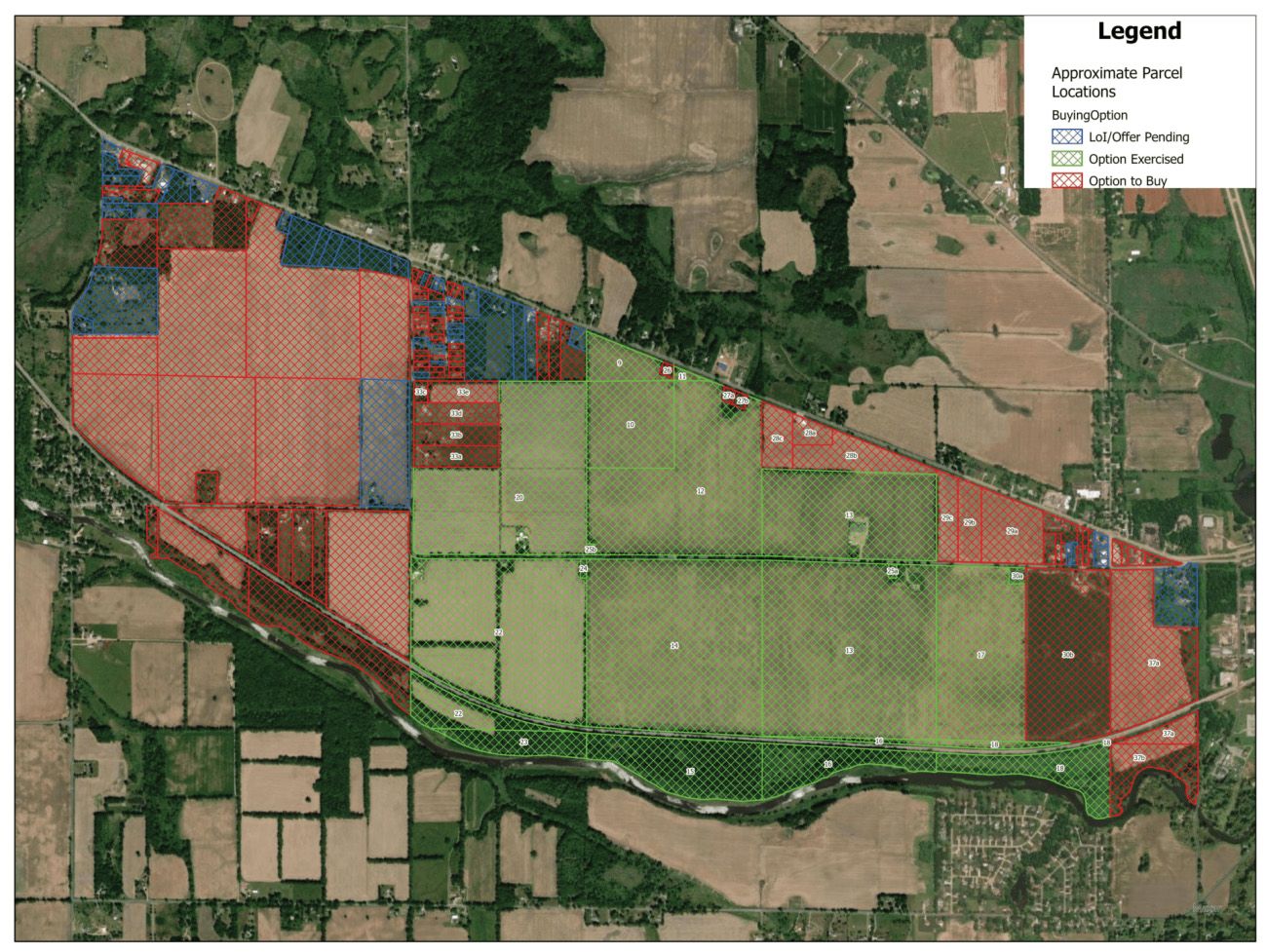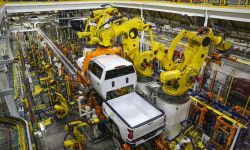Judge denies bid to halt site work for Ford EV battery plant in Marshall

- A citizens group that sued Marshall over Ford’s planned Blue Oval Battery Park sought to have work on the property halted during litigation
- The lawsuit also seeks a public vote on the rezoning of the property
- A judge ruled Monday that work can continue on the property while a decision on the vote is pending
Site preparation can continue on about 900 acres in Marshall where Ford Motor Co. seeks to build a $3.5 billion electric vehicle battery factory, a Calhoun County judge has ruled in denying a request to issue a temporary injunction to halt the work.
The decision comes amid a legal fight between the city of Marshall and a citizen’s committee that filed a lawsuit against the city, seeking to force a public vote on rezoning that had allowed the megasite development that Ford calls Blue Oval Battery Park.
The property — located west of downtown and largely farmland — was purchased by the Marshall Area Economic Development Alliance (MAEDA) after the local economic development group obtained a loan and a grant from the state to facilitate Ford’s project.
Related:
- Citizens group’s zoning lawsuit may stall Ford’s Marshall EV battery site
- Ford EV battery plant on Marshall Michigan megasite gets $1B in incentives
The Committee for Marshall – Not the Megasite said in a news release that members are disappointed by the Monday ruling by Calhoun County Circuit Court visiting Judge William Marietti. The release, issued by Regis Klingler and Glenn Kowalske, said the judge “completely failed to address the constitutional issues we raised.”
“The fight is not over,” the group said. “This was only the first step and we knew it would not be easy.”
MAEDA, which was allowed to intervene alongside the city in the case last week, cheered the ruling.
“We are excited to see it stay on track so it can create local jobs, especially for young people,” CEO Jim Durian said in a statement. “We applaud the court for helping to ensure this vital economic development opportunity will continue to move forward.”
The lawsuit was filed June 27 by the citizens group after the city denied petitions seeking a referendum vote on the property. About 741 acres in Marshall Township were annexed into the city, resulting in new city zoning to allow the industrial development.
While some residents oppose the development, the litigation is centered on voting rights, Robby Dube, lead lawyer for the citizen committee and an attorney for Minnesota-based Eckland Blando, told Bridge Michigan last week.
The citizens group against the project collected signatures on a petition seeking a public vote on the rezoning, but the city denied it June 19, contending the people collecting signatures were not on the committee seeking the vote. The city also said the money it allocated toward the property while rezoning it — including $250,000 for inspection services — means the zoning is not eligible for a referendum vote.
The judge disagreed as he ruled against the request to temporarily halt site work until he makes a decision on the referendum. The timing of the referendum decision is unknown.
Meanwhile, on Tuesday attorneys for Marshall and MAEDA filed requests with the court to dismiss the lawsuit.
Ford announced the battery production factory in February, saying it will be the first lithium iron phosphate (LFP) battery factory in the U.S, allowing the automaker to sell two battery styles.
The state awarded Ford just over $1 billion in incentives, expecting the facility to generate $29.7 billion in personal income over the next 20 years due to workers being paid from $20 to $50 per hour.
Business Watch
Covering the intersection of business and policy, and informing Michigan employers and workers on the long road back from coronavirus.
- About Business Watch
- Subscribe
- Share tips and questions with Bridge Business Editor Paula Gardner
Thanks to our Business Watch sponsors.
Support Bridge's nonprofit civic journalism. Donate today.
See what new members are saying about why they donated to Bridge Michigan:
- “In order for this information to be accurate and unbiased it must be underwritten by its readers, not by special interests.” - Larry S.
- “Not many other media sources report on the topics Bridge does.” - Susan B.
- “Your journalism is outstanding and rare these days.” - Mark S.
If you want to ensure the future of nonpartisan, nonprofit Michigan journalism, please become a member today. You, too, will be asked why you donated and maybe we'll feature your quote next time!




